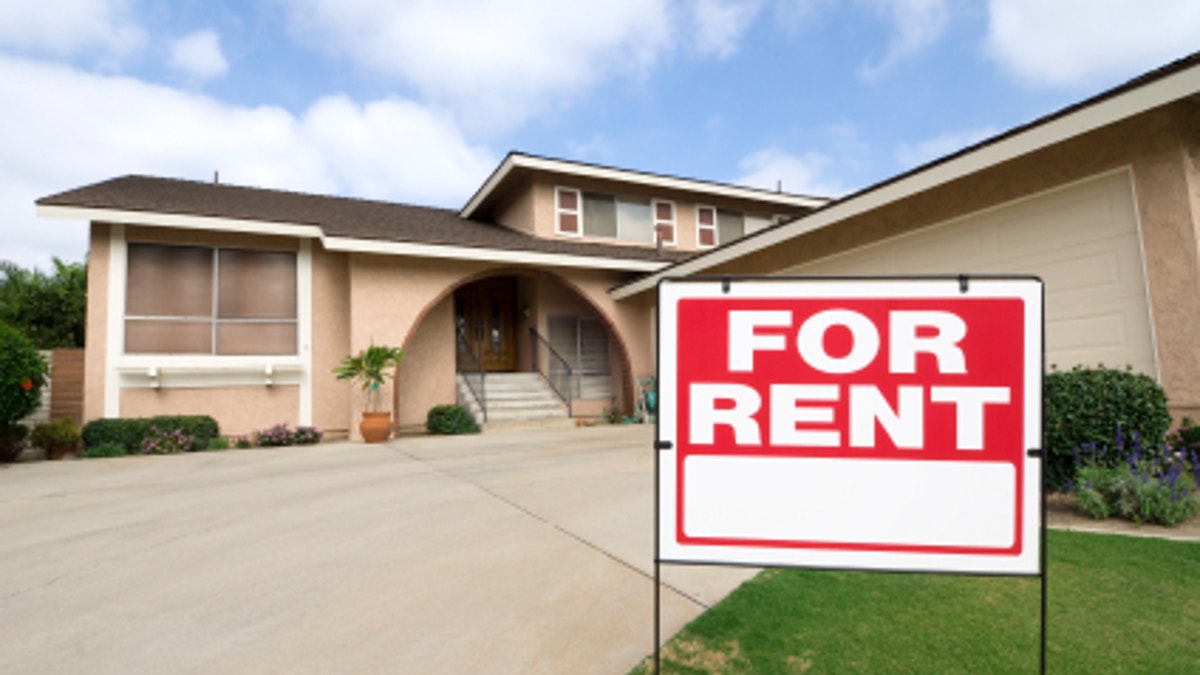
A home is being rented during tough economic times. (iStock)
If you’ve got a little extra space, getting into the landlord business can be a great way to open up an additional income. Of course, it’s not as easy as simply slipping a “For Rent” sign in the window and waiting for potential tenants to hand over their checks. Managing a property can be a little tricky, and there are steps you need to take to protect yourself before you sign a lease.
But if you’re willing to take on the challenge of renting out property, here are some tips on how to set yourself up as a landlord.
Setting The Price
Before you can enter the rental market, you need to figure out how much you stand to gain by taking on tenants. Sites like Rentometer.com enable you to get a sense of average rental rates in your area. Of course, this is just an average and should be used as a starting point. Pricing your particular property is a little trickier. Head over to Craigslist.org and try to find properties that match yours in terms of size and quality. By scanning the photos of available units, you can get a quick sense of what properties like yours are going for. In more competitive rental markets, you might also consider hiring a rental agent, who, much like a realtor, can help you price the place and fill it with tenants.
Cover Your Bases
Your current insurance plan probably won’t cut it if you’re going to get into the landlord business. By getting an insurance plan specially tailored to people renting out a property, you can better protect yourself from tenant lawsuits, as well as lost rent should your property be vacated due to a disaster.
You’ll also need to set aside a lump sum of money in case you need to make some sudden repairs. You can’t, after all, tell a tenant that you are too broke to fix a broken hot water tank or leaky roof. You can also tap into this sum of money should you tenants move out and you’re stuck with a vacant property for a few months.
Lining up the Paperwork
Before you’re ready to put some tenants into your property, you need to get the paperwork sorted out. The Landlord Protection Agency, provides plenty of useful forms -- such as leases, tenant screening forms and late payment notices. Should you be forced to confront a tenant that won’t pay, or has trashed the place, you’ll have the legal documents you need to protect yourself.
You’ll also need to figure out what kind of lease and the lease’s main terms you want. Month-to-month, or yearly? Will pets be allowed? And who pays for utilities? The Landlord Protection Agency has forms for a variety of situations; however, it might also be a good idea to hire an attorney to help get you set up.
When it comes time to file your taxes, you’ll need to fill out the Schedule E form in order to declare you rental income. Of course, renting out your property also comes with some choice deductions, such as repairs and depreciation, so make sure you read the forms carefully and figure out what you can deduct and what you owe.
The Occasional Landlord
Being a full-time landlord isn’t for everybody. It can be a lot of work. There are legal issues to worry about, and, of course, it’s only open to those with extra space to rent. But if you want to make a little extra money, without having to spring for a second home, there are several sites that can help you make money off your home when you’re not using it.
With Airbnb.com, you can transform your home into a temporary hotel. The site allows you to set a nightly rate for your place and connects you with guests looking for short-term stays, allowing you to profit off your place when you head out of town for vacation or a business trip. Of course, there are inherent risks in letting perfect strangers stay in your house or apartment, but Airbnb mitigates some of those risks. Renters are covered for up to $1 million in damages, and a review system that applies to both guests and hosts allows you to scrutinize and reject renters that have been bad guests elsewhere.
Finally, if you have a beach house that sits vacant much of the year, try VRBO, Flipkey or HomeAway, which specialize in putting vacationers into your scenic retreat.